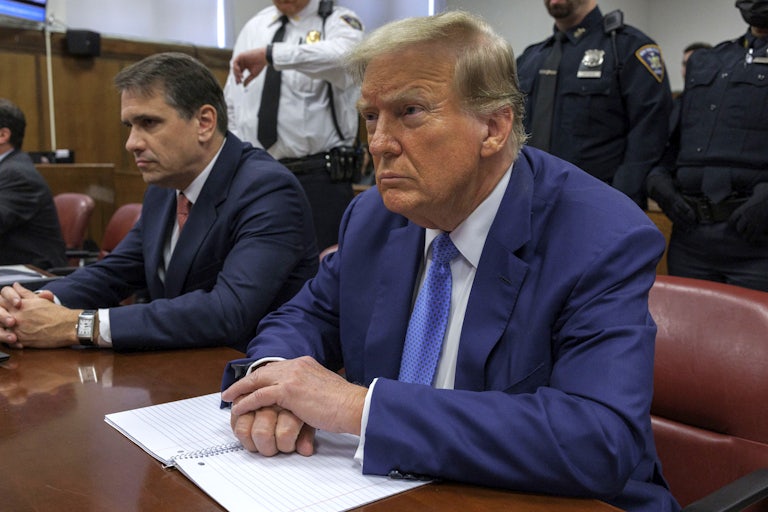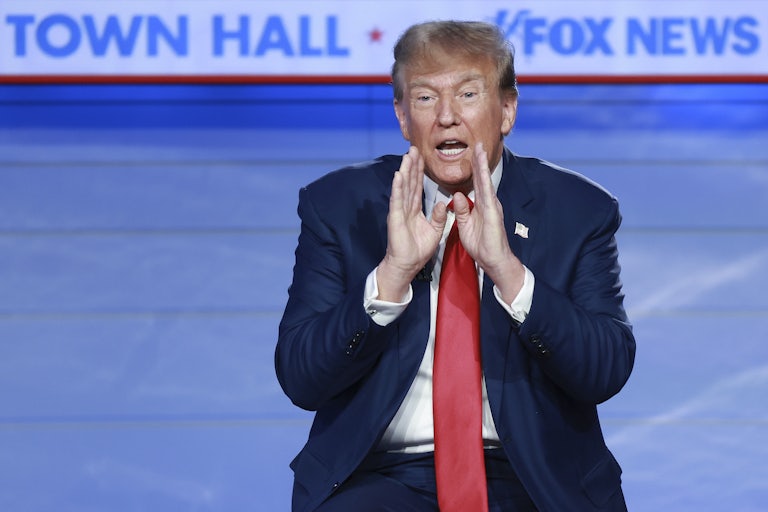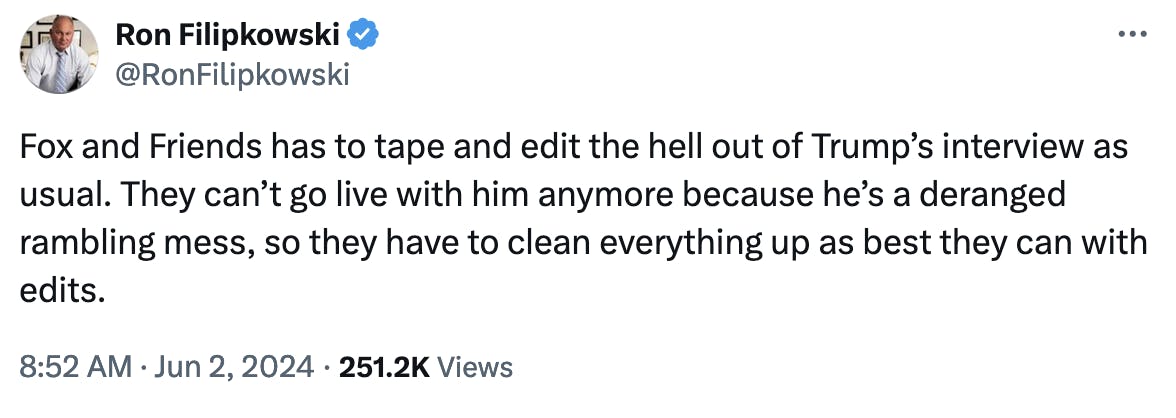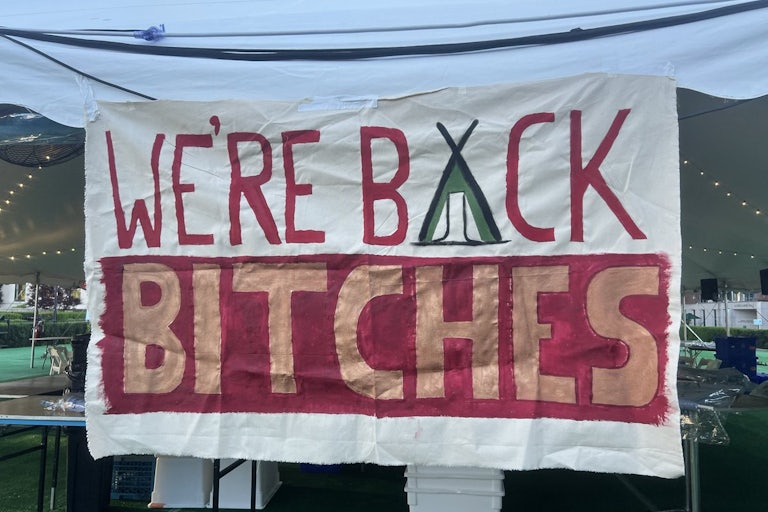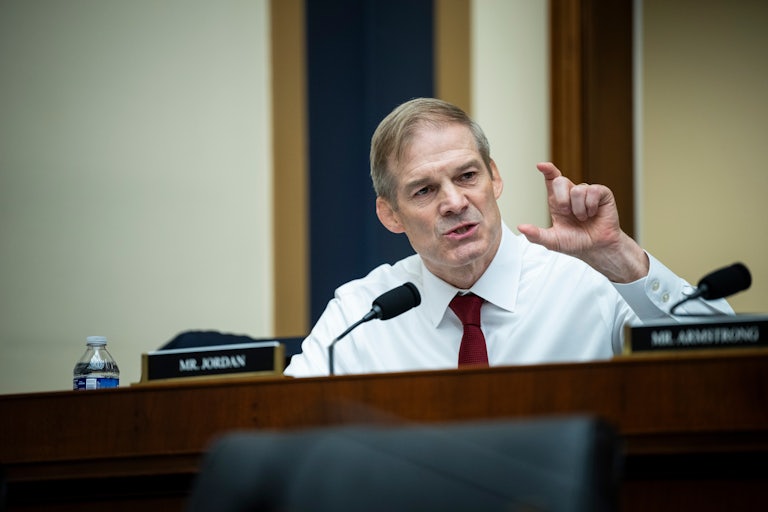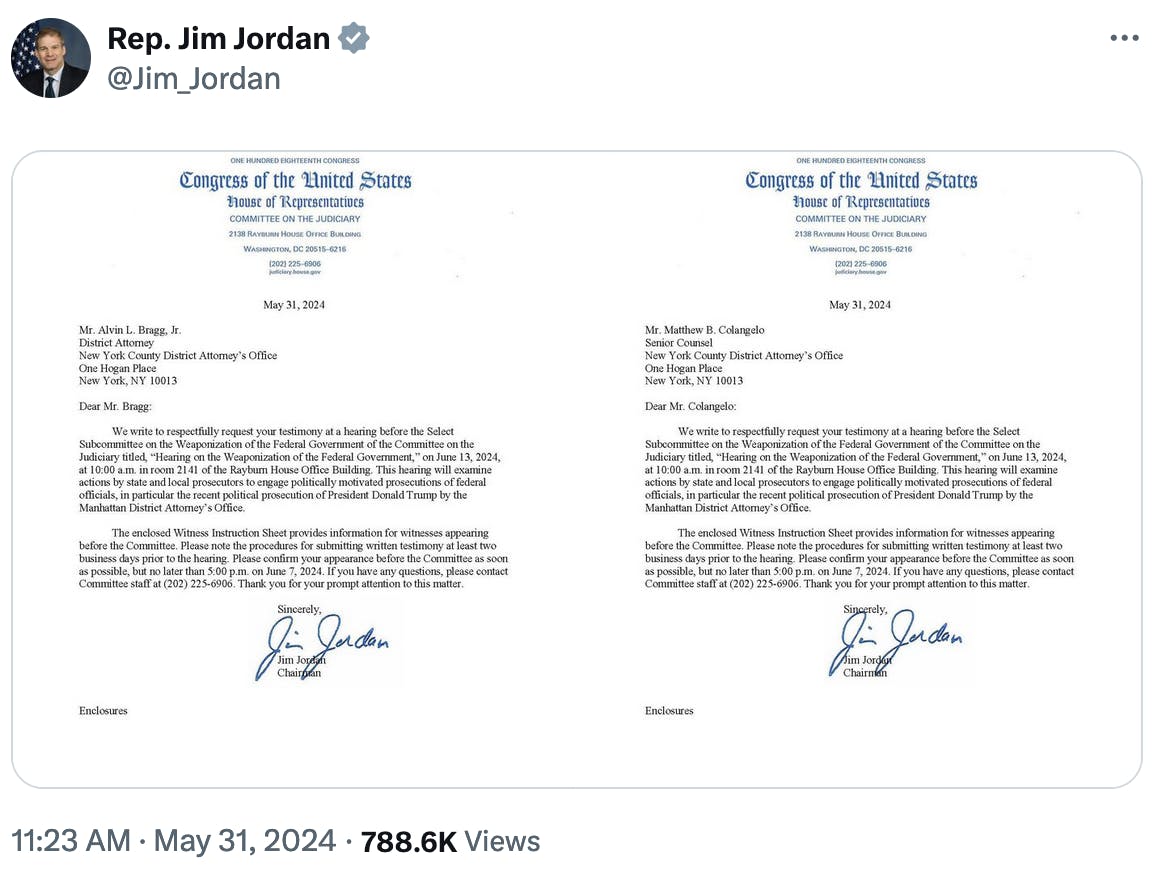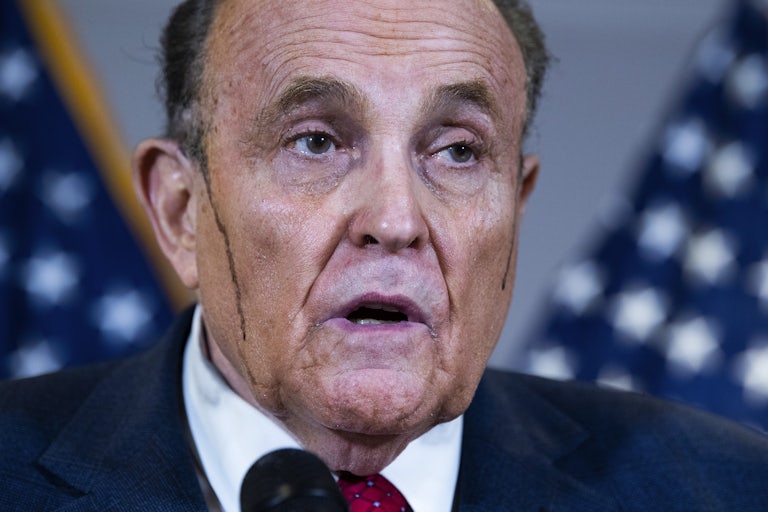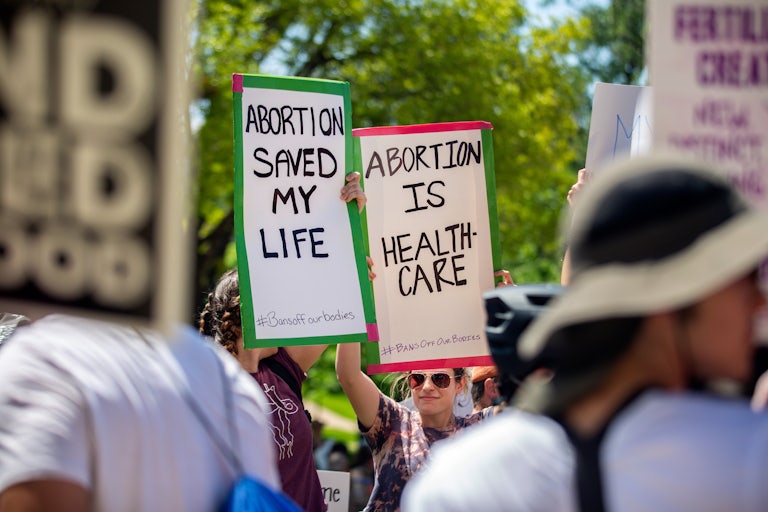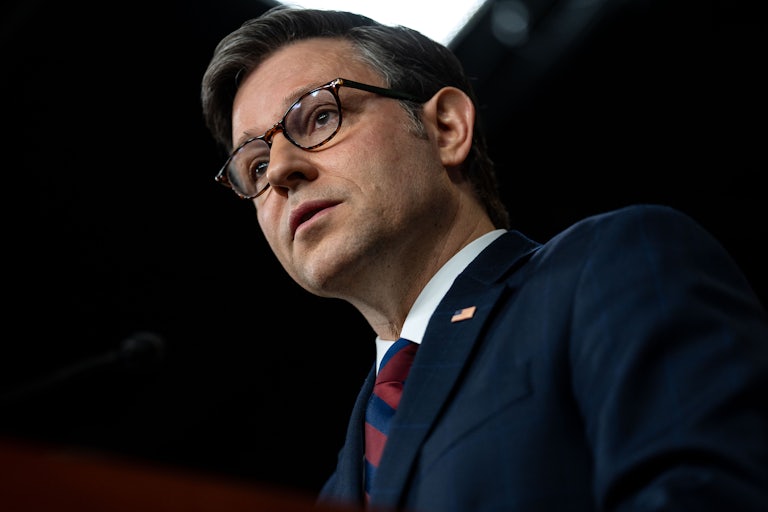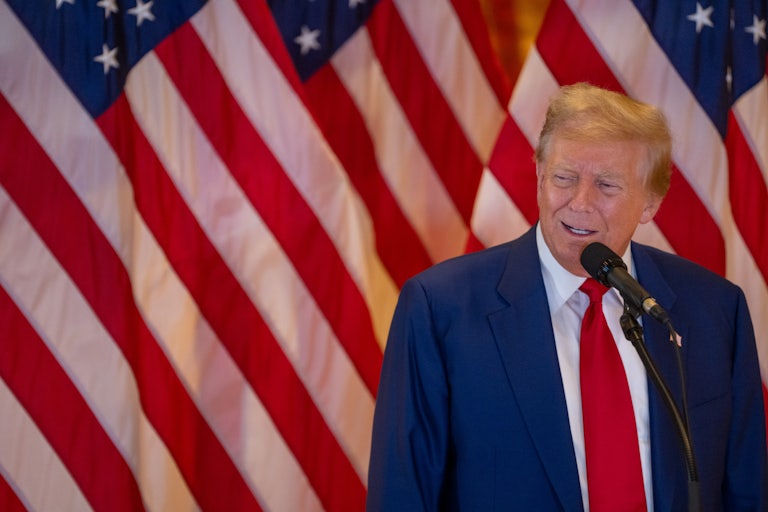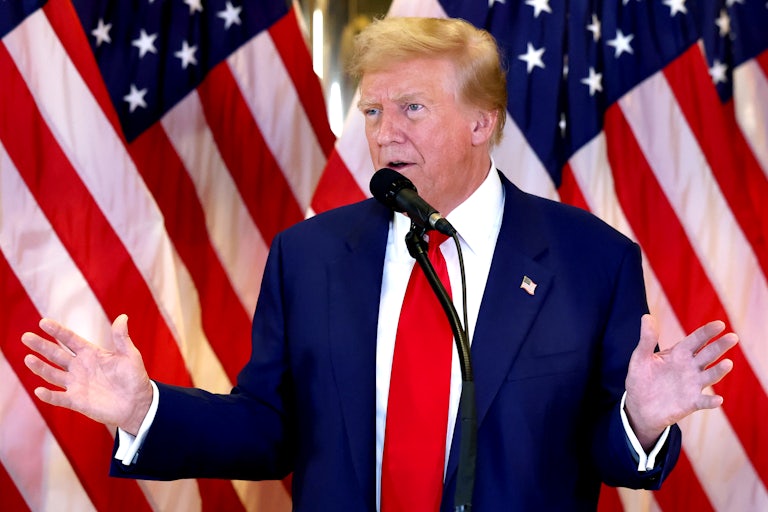Panicking Felon Trump Begs His Favorite Justices for Mercy
The former president has faith in at least one court, apparently.
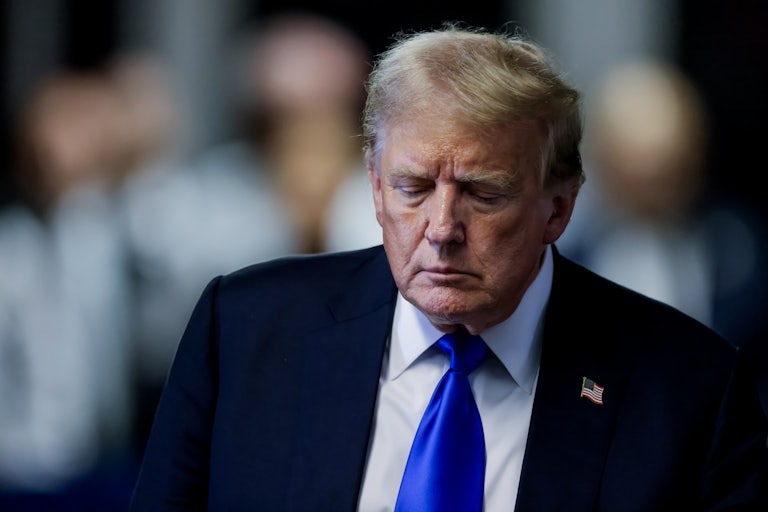
Donald Trump is hoping that he can leverage the Supreme Court to get out of his newfound felony conviction—but legal experts don’t believe that’s in the cards.
The cornered former president took to Truth Social on Sunday, claiming that a SCOTUS intervention might be his only way out of the New York ruling and practically begging his appointees to involve themselves in his criminal convictions.
“The ‘Sentencing’ for not having done anything wrong will be, conveniently for the Fascists, 4 days before the Republican National Convention,” Trump wrote. “A Radical Left Soros backed D.A., who ran on a platform of ‘I will get Trump,’ reporting to an ‘Acting’ Local Judge, appointed by the Democrats, who is HIGHLY CONFLICTED, will make a decision which will determine the future of our Nation? The United States Supreme Court MUST DECIDE!”
Trump has reason to turn to the high court: House Speaker Mike Johnson shockingly indicated Friday that he thought some of the justices were “deeply concerned” about the trial outcome. But the bid is unlikely to pay off.
Trump could potentially push the state case to federal courts if he were reelected as president, but doing so would be incredibly unlikely unless he had already exhausted all other avenues via the appeals process, which could take years, according to legal experts that spoke with The New York Times.
Appealing the case would most likely turn into a referendum on the judge that oversaw it, Judge Juan Merchan, who endured Trump’s mud-slinging throughout the seven-week trial primarily over a gag order, which prevented Trump from attacking witnesses, jurors, and courtroom staff’s family—but did not prevent him from hurling vitriol at Merchan.
Trump repeatedly falsely claimed Merchan was violating his First Amendment right to free speech, but despite the constant heat, Merchan never broke. Appellate lawyers have described Merchan’s behavior throughout the trial as “flawless” and have predicted that won’t play well for Trump’s appeals.
“This is a garden-variety state court conviction,” Mark Zauderer, a New York litigator, told the Times. “I don’t see a plausible path to the Supreme Court.”
